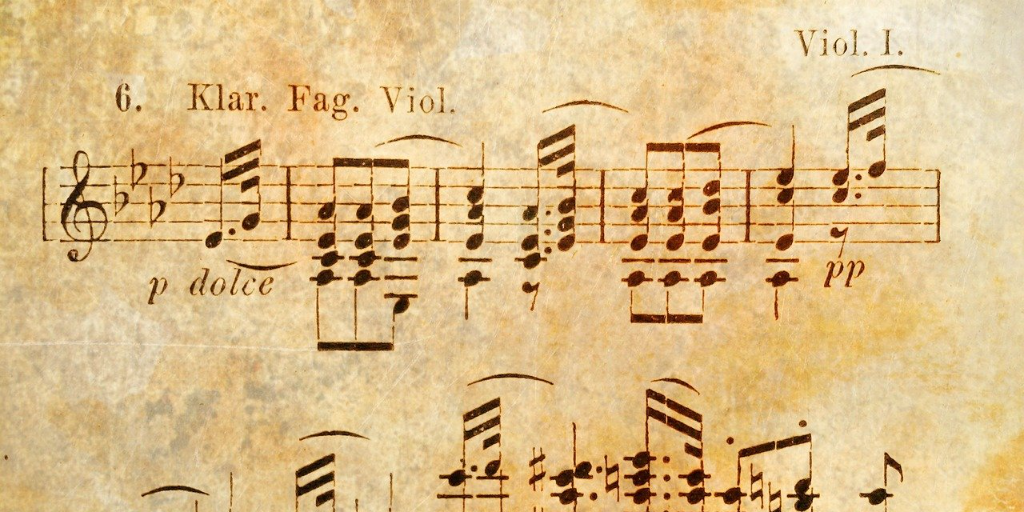It’s Beethoven’s 250th birthday this week
Lesson summary
Hi there, I’m Jeff; JR is the producer; and this is Plain English lesson number 320. The full lesson, including the fast audio, video, and exercises, is available online at PlainEnglish.com/320.
Coming up today: it wasn’t exactly the birthday celebration the classical music world had planned, but this week a concert in Bonn, Germany, will commemorate 250 years since the birth of Ludwig van Beethoven, one of the best classical composers ever to live. Today’s lesson will be about Beethoven’s life and the adaptations the classical world has had to make due to the pandemic. The phrasal verb is “burn through;” I’ve got a couple of good examples of that—the examples are about startup companies, airlines, and pro athletes. And we have a quote of the week from Beethoven himself.
Beethoven’s 250th
Quick: who’s the greatest composer of all time? If you ask this question to people familiar with classical symphonies, piano sonatas or string quartets, chances are you’ll get one of three names: Mozart, Bach or Ludwig van Beethoven.
Ludwig van Beethoven was baptized on December 17, 1770—his exact birthday is unknown, but it’s almost definitely this week, 250 years ago exactly. That makes him sixteen years younger than Mozart and 85 years younger than Bach.
Mozart was famously a child prodigy, but Beethoven is classical music’s most vivid character. With a mane of disheveled hair, a brooding demeanor, and a temper famous across Europe, he was a creative force to be reckoned with. His life was characterized by a series of trials, from professional to personal. Famously, Beethoven was blessed with a singular musical talent but cursed with debilitating hearing loss.
He was born in Bonn, a city in modern-day Germany, where he developed as a musician. In his early twenties, he left for the rich musical culture of Vienna, Austria. But it wasn’t smooth sailing, for just as he was preparing to establish himself as a professional musician, his hearing started to fail him. In 1802, ten years after moving to Vienna, he contemplated suicide.
Lucky he didn’t follow through. Just six years later, in 1808, already a respected musician, he conducted a four-hour concert that debuted two symphonies and a piano concerto, winning accolades from the highest levels of European musical culture and cementing his reputation as a great classical composer. He was recognized and patronized by European royalty and commanded premium prices for his compositions and his concerts.
Having reached the peak of his profession in Vienna, and finally able to make the fortune he thought he deserved, he saw his adoptive city rampaged by Napoleon Bonaparte. The lows returned. He wrote that life in war-torn Vienna was destructive and disorderly, “nothing but drums, cannons and human misery,” he said.
Despite his success as a composer, he oscillated between riches and bad fortune, not unlike many freelancers today. He would win contracts with musical publishers or royalty, only to find his patrons were unwilling or unable to pay up. He’d compose work in a mad dash for more money—and then burn through the money he earned. He once complained “I have not a farthing left.” A farthing was a quarter of an old British penny.
By age 45, Beethoven was totally deaf. It was not the isolating loss of hearing that you might imagine. Instead of hearing nothing, he heard an incessant “squealing, buzzing and humming” in his ears, robbing him of internal peace.
He drank. An analysis of his health, taken from DNA samples and written histories, suggests that he drank copious amounts of wine from a cup tainted with lead, which contributed to his hearing loss. He is said to have suffered a wide variety of ailments, from an irritable bowel to depression to cirrhosis of the liver. He died at age 56.
His 250th birthday, the year 2020, has been no less tumultuous than his life was. The classical music world prepared to commemorate his birthday with a series of concerts, lectures, and celebrations, which were all to culminate this week in a concert in Bonn. It wasn’t to be. Hundreds of concerts in Germany and Austria were postponed, as were commemorations in Canada, the United States, Japan, Brazil, and other countries. Many were moved online, but that’s not the same.
The Bonn concert will go on: it will be streamed on television and online this Thursday and Friday. Celebratory concerts will continue until September 2021.
Virtual concerts
A lot of symphonies are staging virtual concerts for Beethoven’s birthday. I haven’t thought about a virtual concert, classical or otherwise. At first, it just seemed depressing: some things are just not meant to be put online. But I think I might be coming around: I might try a virtual concert.
Is that something you guys have done? If you have, share with me in our free Facebook group. If you’re not a part of it, you can join at PlainEnglish.com/Facebook.
Great stories make learning English fun

